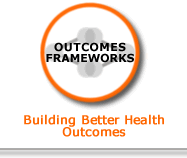| |
Activities to develop the relevant competencies (to be defined by, for instance, local need, national and professional guidelines) should include different service provider staff in contact with individuals with work-related health issues and be delivered on an ongoing basis, and this will contribute to more staff having the relevant competencies to support individuals and workplaces, identify work-related health issues at an early stage, and deliver consistent, integrated and timely support to individuals.
Rationale
Policy Note
Sources
Rationale
Developing the competencies of a range of service provider staff will contribute to more staff have the relevant skills and confidence to support individuals, and will have greater knowledge of support and services across the system enabling timely appropriate referrals and signposting to ensure individuals receive timely, tailored support to return to and/or remain in work and well. It must also be recognised that this activity is dependent on local decisions around use of resources and priorities for training based on local need, and upon the capacity of services and staff to deliver in this field (e.g. staffing levels and workforce planning, allocation of workloads).
In relation to primary healthcare interventions there is clear review level evidence that many GPs and other healthcare professionals feel ill-equipped, and lack training and expertise on work issues, and that many GPs report insufficient time, resource and support to address work issues adequately.[1]
Competencies of staff can be further developed and supported through the effective implementation and use of professional standards and guidance. A range of professional standards and guidance are available to support staff development and practice in the health and work agenda.
There is some evidence that guideline dissemination and implementation, computerised clinical support systems, audit and feedback, and multifaceted interventions can change health professionals’ behaviour, but the effects are small to moderate.[1]
Informed by reviews of effectiveness evidence, NICE public health guidance 06 Behaviour change at population, community and individual levels sets out a set of generic principles and recommended actions to guide the planning and delivery and evaluation of public health activities to change health related behaviour at the individual, community or population level.[2] This included the need to equip practitioners with the necessary competencies and skills, as set out in the guidance, to support behaviours change, using evidence-based tools. The NHS Health Scotland Commentary on this guidance supported these action points subject, where appropriate, to adaptation to fit Scottish organisational arrangements.[3]
A recent literature review to inform discussion on the best way forward for training and education of healthcare staff supporting vocational rehabilitation in Scotland highlighted deficiencies in the current system in the UK.[4] Evidence from a meta-analysis of studies in vocational rehabilitation which examined employment outcomes reported the positive influence of higher levels of vocational rehabilitation education for service providers on rehabilitation outcomes.[5] Informed by evidence reviews and expert opinion, the Boorman review [6] recommended that “continued priority is given to attracting doctors to pursue careers in occupational health medicine so as to ensure that sufficient consultant resource is available to enable all NHS employers to access specialist advice when needed” (p96).
Scottish policy note:
Health Works set out a specific action to increase the use of case management approaches in Scotland. Formal case management training has been recently introduced to the UK. This foundation training in vocational rehabilitation is being delivered as CPD courses for those already involved in vocational rehabilitation, primarily health care professionals or human resources personnel using the National Institute of Disability Management and Research (NIDMAR) programme. As part of the development of a Scottish Offer the Scottish Government is reviewing available professional standards for use within the Scottish context.
NHS Education for Scotland (NES) are supporting education and practice development for vocational rehabilitation in Scotland. This has included the development of an electronic community of practice within the NHS Knowledge Network.
The Scottish Government and NES will deliver a programme for the development of the existing employability training pack and its delivery to healthcare and other professionals, seeking formal accreditation of training.
Sources
-
Waddell G, Burton AK, Kendall N (2008). Vocational Rehabilitation: What works, for whom, and when? A report for the Vocational Rehabilitation Task Group. The Stationary Office: London.
-
NICE (2007). NICE public health guidance 06 Behaviour change at population, community and individual levels. NICE: London.
-
NHS Health Scotland (2007). Health Scotland Commentary on 06 Public Health Guidance: Behaviour change at population, community and individual levels. NHS Health Scotland: Edinburgh.
-
NHS Education for Scotland (2008). Getting Vocational Rehabilitation Working for Scotland: Education Needs of Staff Supporting Vocational Rehabilitation. A Discussion Document. NHS Education for Scotland: Edinburgh.
-
Frain MP, Ferrin JM, Rosenthal DA, Wampold BE. (2006). A Meta-Analysis of rehabilitation outcomes based on education level of the counselor. Journal of Rehabilitation, 72(1): 10–18.
-
Boorman S (2009). NHS Health and Well-being. Final Report. Department of Health: London.
|



